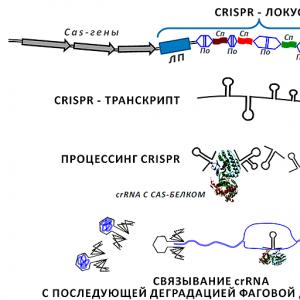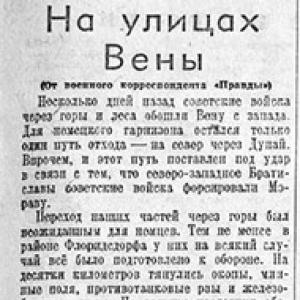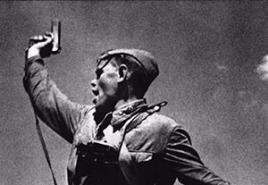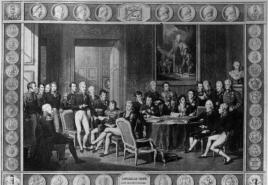Russians don't give up this country. "Russians don't give up" - the story of a catch phrase
We are not accustomed to taking something ready-made and using it, we definitely need to optimize it and then use it! if something is not there, we never lose heart. Not? So it will be! Let's do it! We will find a way out of any situation without bothering too much. Cleverness is our everything, every house has its own Kulibin! The Russian land has stood and will stand on that!
We easily resolve issues, because we don't even see any problems nearby:

They turned off the hot water, but how do you want to wash the passion? No problem!

Wife asked to peel the onion? Easy, and even without tears!


Minced meat needs to be done, but the meat grinder is broken? Eh, how are we without dumplings? Nope, you're lying! You can't take us with your bare hands!

Dry your laundry, but don't feel like going down into the yard? Right now, let's arrange it!

The dog, you say, is freezing? Yes-ah, we have what we need winters!

And it rains often, look, the surveillance camera is all wet ...

The chair has broken, and the drawing tomorrow to hand over? Why are you silent, come on, I'll fix it! You can hold out until morning!

How to fix the roof if there is no money yet? everything must be done so that it does not collapse yet! Will wait until profit!

If you need the trunk to close ...

To transfer the cargo to the neighboring village by piece of iron? Yes, just spit, now, I'll fit it great ... and with a breeze!


Were standing in every yard! What do we need a centrifuge? Ugh! Spit and smudge!

We will walk on any stones, and we will not sneeze!

And if we want, we will make it more beautiful! The main thing for us is to want to do it! We are free birds, we do not sing under compulsion!

We even have children - well, the Kulibins are growing!
At the end of the 17th century, there lived a hereditary military man, General of Infantry, Count Vasily Ivanovich Levashov, who during the Russian-Swedish War was the commandant of the city of Friedrichsgam. In 1788 the city was besieged by the Swedish fleet. Gustav III suggested that the commandant surrender, and Count Levashov replied with the famous "Russians do not surrender!" The siege was soon lifted.
If we turn to more ancient literary sources, we will find that in the "Lay of Igor's Regiment" Prince Igor before the battle addresses the soldiers with the words: "Brothers and squads! It is better to be chopped up than to be full ”(Brothers and druzhino! Lutse would be full of being, not more full of being). It takes place in May 1185. That is, even then these words were in use.
The Tale of Bygone Years, written by the monk Nestor, acquaints the reader with the events of the 10th century. The son of the Grand Duchess Olga, Prince Svyatoslav Igorevich (945–972) spent his entire life on campaigns. His mother was a Christian, and the prince remained a pagan.
He refused to accept the new faith for fear of ridicule. In his youth, Svyatoslav had to avenge his father, and this was reflected in the character of the prince. The chronicle describes him as an unpretentious, strong and resilient warrior. He conquered the Bulgarians, defeated the Khazars, fought with the Byzantines. The historian Karamzin called him “Russian Macedonian”. During the years of the prince's reign, the state grew and stretched from the Volga to the Balkans, from the Black Sea to the Caucasus. It was he who honestly warned the enemies “I’m going at you,” and since then this phrase has forever remained in the Russian language. It was he who first said the phrase “Russians don’t surrender!”, Although it sounded somewhat different.
Greek and Old Russian sources write about the event in different ways, but the overall picture can be added up. By agreement with the Byzantine emperor John Tzimiskes, Prince Svyatoslav fought with the Greeks against the Bulgarians. Having defeated the enemy, seizing cities and wealth, he was inspired and, standing near the city of Arcadiopolis, demanded a double bribe from the Greeks. The Greeks did not like this, and they put up 100,000 soldiers against the prince.
Realizing that he could not stand, the prince, addressing the squad, uttered the very words that had passed through the centuries, inspiring the descendants to slaughter: “So we will not shame the Russian land, but we will lie down here with bones, for the dead do not have shame. If we run, we will be shameful. " Then he defeated the Greeks and went to Constantinople, which was 120 kilometers away. The Romans chose not to get involved with the barbarian and paid off. The prince decided to return to Kiev, to gather more soldiers. On the way home, he died in an ambush by the Pechenegs.
What made the Russian princes talk and act like that? Some believe that paganism. Allegedly, like the Varangians, they believed that death on the battlefield meant an afterlife in Valhalla.
However, the son of Svyatoslav, Prince Vladimir, became Orthodox and baptized Russia, and was not a coward either. Two hundred years after the words of Svyatoslav, in "The Tale of the Ruin of Ryazan by Batu", Prince Yuri Ingvarevich also says to the squad: "It is better for us to gain eternal glory by death than to be in the power of the filthy." And the Mongols remember the warriors Evpatiy Kolovrat with the words: "Not one of them will leave the slaughter alive."
Apparently, the point here is not in paganism, but in that amazing core that is present in Russian people. For Russians, to lose their honor or become a traitor is worse than the most cruel death. Therefore, such phrases are born and accompany the Russian people throughout history.
The history of the famous phrase said by the actor Viktor Sukhorukov in one of the scenes of the film "Brother 2" has deep roots. For the first time, the catch phrase "Russians don't give up!" flew around the world during the First World War. During the defense of the small fortress Osovets, located on the territory of today's Poland. The small Russian garrison only needed to hold out for 48 hours. He defended himself for over six months - 190 days!
The Germans used all the latest weapons achievements, including aviation, against the defenders of the fortress. For each defender there were several thousand bombs and shells. Dropped from airplanes and fired from dozens of guns, including the two famous "Big Bertas" (which the Russians managed to knock out).
The Germans bombed the fortress day and night. Month after month. The Russians defended themselves in the midst of a hurricane of fire and iron to the last. There were very few of them, but the same answer always followed to offers of surrender.
German gas battery
Seeing that the artillery was not coping with its tasks, the Germans began to prepare a gas attack. Note that poisonous substances were banned at one time by the Hague Convention, which the Germans, however, cynically despised, like many other things, based on the slogan: "Germany above all."
The Germans prepared a gas attack carefully, patiently waiting for the required wind. We deployed 30 gas batteries, several thousand cylinders. And on August 6, at 4 am, a dark green mist of a mixture of chlorine and bromine flowed onto the Russian positions, reaching them in 5-10 minutes. The gas wave 12-15 meters high and 8 km wide penetrated to a depth of 20 km. The defenders of the fortress did not have gas masks.
"All living things in the open air on the bridgehead of the fortress were poisoned to death," recalled a participant in the defense. - All the greenery in the fortress and in the nearest area along the path of the movement of gases was destroyed, the leaves on the trees turned yellow, curled up and fell off, the grass turned black and lay on the ground, the flower petals flew around. All copper objects on the bridgehead of the fortress - parts of guns and shells, wash basins, tanks, etc. - were covered with a thick green layer of chlorine oxide; food items stored without hermetic sealing - meat, oil, lard, vegetables - turned out to be poisoned and unsuitable for consumption. "
At the same time, the Germans began a massive shelling. After him, over 7000 infantrymen moved to storm the Russian positions. Their goal was to capture the strategically important Sosnenskaya position. They were promised that they would not meet anyone but the dead.
Aleksey Lepeshkin, a participant in the defense of Osovets, recalls: “We did not have gas masks, so the gases caused terrible injuries and chemical burns. When breathing came out wheezing and bloody foam from the lungs. The skin on the hands and faces was blistering. The rags with which we wrapped our faces did not help. However, the Russian artillery began to operate, sending shell after shell from the green chlorine cloud towards the Prussians. Here the head of the 2nd defense department Osovets Svechnikov, shaking from a terrible cough, croaked out: “My friends, we, like the Prussians-cockroaches, do not die from injury. We will show them to remember forever! "
It seemed that the fortress was doomed and had already been taken. Dense, numerous German chains came closer and closer ... And at that moment from a poisonous green chlorine fog ... a counterattack fell upon them!
The "living dead" with faces wrapped in rags were walking towards the Germans. Shout "Hurray!" there was no strength. The soldiers were shaking with coughs, many coughed up blood and pieces of lungs. But they went.
 Attack of the Dead. Artist: Evgeny Ponomarev
Attack of the Dead. Artist: Evgeny Ponomarev There were just over sixty Russians. Remains of the 13th company of the 226th Zemlyansky regiment. For each counterattack, there were more than a hundred enemies!
The Russians walked to their full height. Into the bayonet. Shaking from coughing, spitting out, through rags wrapping their faces, pieces of lungs on bloody tunics ... Exhausted, poisoned, they fled with the sole purpose of crushing the Germans. There were no backward people, no one had to be rushed. There were no individual heroes, the companies walked as one person, animated by only one goal, one thought: to die, but to take revenge on the vile poisoners. "
These soldiers plunged the enemy into such horror that the Germans, not accepting the battle, rushed back. In panic, trampling each other, getting confused and hanging on their own barbed wire fences. And then the seemingly already dead Russian artillery hit them from the clubs of the poisoned fog.
This battle will go down in history as the "attack of the dead". During its course, several dozen half-dead Russian soldiers put 14 enemy battalions to flight!
The Russian defenders of Osovets never surrendered the fortress. She was abandoned later. And by order of the command. When the defense has lost its meaning. Neither cartridge nor nail was left to the enemy. Everything that survived in the fortress from German fire and bombing was blown up by Russian sappers. The Germans decided to occupy the ruins only after a few days ...
The Russians did not give up even during the Great Patriotic War. Brest Fortress, Adzhimushkaya undergrounds, Kiev football match with death, Resistance movement in Western Europe, Pavlov's Stalingrad House, fascist torture chambers ...
The idea of \u200b\u200binvincibility is part of the palette of Russian exceptionalism.
Indeed, it is enough to look at the dynamics of the growth of the Moscow principality, which in 600 years has turned from a de facto Horde ulus into an empire spread out on the shores of three oceans, to understand that Russia has won many military successes. At the same time, it was far from the only country that was pushing its borders so rapidly. Let us recall in this connection at least the USA, China and Great Britain. I am not inclined to underestimate the victories of the Russian army and the militia, but to sacralize these victories and bring them to the absolute is an absolutely unworthy and absurd occupation, all the more so as it does not at all stand up to historical criticism.
Let's not go back into the depths of the centuries and remember the battle on Kalka, the devastation of the Russian cities of Batu, the fact that for hundreds of years Russian princes were tributaries or collectors of tribute for the Golden Horde. Let's not talk about the Deulinsky armistice of 1618, according to which the Polish-Lithuanian Commonwealth took from Russia half of its western territories, including Smolensk (in his patriotic novel The Wall, Vladimir Medinsky presents the defense of Smolensk as a triumph of Russian arms and will, but that the city in the end was occupied by the Poles, he is shy to mention). Let's not even drive the patriots into a corner by reminding us of the complete defeat of Russia in the Crimean War (1853-1856), we will focus exclusively on the 20th century, in which, by the way, all the current supporters of the concept of invincibility were born.
1904-1905, the Russo-Japanese War: the destruction of the Russian fleet at Tsushima, the fall of Port Arthur, the humiliating Peace of Portsmouth, according to which Russia gave up southern Sakhalin and all its positions in Manchuria.
1914-1918, the First World War: a catastrophic series of defeats of the Russian army. About 3 million Russian soldiers died, 2.5 million were captured. Russia, represented by the Council of People's Commissars, signs the Brest-Lithuanian Treaty, losing Estonia, Latvia, Lithuania, Poland, Ukraine (i.e., the lion's share of its most economically developed territories) and the South Caucasus.
1919-1920, Soviet-Polish war: the total losses of the Soviet side are not known, but only as a result of the defeat near Warsaw (August 1920) 25,000 Red Army soldiers died, 60,000 were captured by the Polish, 45,000 were interned by the Germans. The war ended with the signing of the Riga Treaty, according to which the Soviet (read: Russian) government lost all of Western Belarus and abandoned its claims to Western Ukraine.
1979-1989, Afghan war: 15,000 (according to some estimates, 26,000) Soviet soldiers died, the Soviet Union could not achieve any of the goals set in the war, in the most successful period, Soviet troops controlled only about 15% of the territory of Afghanistan.
And this is just a list of wars in which the "invincible" Russian troops and, if you like, the Russian people were unconditionally defeated.
To this we can add the Soviet-Finnish war of 1939-1940, which the USSR actually lost, because it did not fulfill its main task (annexation of Finland) and suffered colossal human losses (about 170,000 dead and missing; more than 300,000 wounded and frostbitten), almost 8 times more than the Finnish side.
The list can be supplemented with the First Chechen War (1994-1996), which, in fact, was also lost by Russia. And the outcome of the Second Chechen War (1999-2000) is difficult to recognize unequivocally victorious: on the one hand, the armed resistance of the militants was ended, but, on the other hand, now every year the Russian government pays a hefty indemnity to Chechnya under the guise of federal subsidies.
So, statements about the unique invincibility of the Russian people are a myth, and myths are like psilocybin mushrooms or fly agarics: they exacerbate psychopathic character traits, distort perception, develop addiction and have a hallucinogenic effect. In fact, myths are even more dangerous than hallucinogenic mushrooms, because unlike the latter, they are capable of infecting the psyche of tens of millions of people simultaneously, which is an order of magnitude more than the number of victims of the HIV epidemic in Russia. Schoolchildren and students are a special risk group here. Mushrooms can bring their immature consciousness into a state of "patriotic" excitement, provoking irreversible actions: violence, psychosis, pogroms, wars. It is possible that it is the hallucinogenic properties of the myth of invincibility that contribute to the wide spread of the genre of political fiction in the Russian best-selling industry. The heroes of these bestsellers, designed mainly for a youth audience, go back in time and there they help eminent ancestors - Ivan the Terrible, Peter the Great, Nicholas II, Stalin - to win all wars and conquer new spaces. The reasoning of the aforementioned Tsarev, and Streltsov's speeches, Borodai's speeches, Kurginyan's hysterics, and numerous reports of the First Channel are based on the same properties.
The cult of invincibility does not lead to anything good. Addictive rhetoric about exclusivity, trips to uniqueness turn into mania. We saw this in the example of the Third Reich, Italy under Mussolini, Japan ruled by Hideki Tojo, Serbia under Milosevic, and Georgia in the early 1990s. (as you know, Gamsakhurdia also liked to speculate about the world mission and "moral destiny", but not the Russian, but the Georgian nation).
Russia has not demonstrated anything extraordinary in terms of invincibility - and this is not necessary in order to win the respect of the world community. Rather, they could boast of this, say, the same Afghans (they beat the British, and the Russians, and under the Americans partially retain their positions in the country), the Vietnamese (over the past 60 years they defeated the French, Americans, Cambodians and successfully resisted the Chinese) or even Mongols (in those days they conquered most of civilized Eurasia).
Real winners don't make cults out of victories. Take the United States for example. For less than 250 years, this state, to which Russophiles are increasingly turning their "righteous anger", emerged victorious from all major wars (with the exception of the Vietnam War), in which they participated: The Revolutionary War against Great Britain (1775-1883), numerous wars with Indian tribes, the war with Mexico (1846-1848), the Spanish War (1898), the First World War, the Second World War, the South Korean War (1950-1953), the Gulf War (1990 -1991) and the war in Iraq (2003-2011). But even with such an impressive track record, the American media and public are not obsessed with the obsession with the invincibility of the American people. Neither in schools, nor on television, nor on the streets, nor even in the company of thorny mushroom addicts, you will not hear the slogan "Americans do not give up."
The invincibility of the Russian people is just one of the types of hallucinogenic mushrooms growing in the field of public consciousness. Others include all other manifestations of mass drug addiction and mass narcissism, namely, the idea of \u200b\u200bGod's chosen people of the Russian people; theses about the amazing hospitality, sincerity and self-sacrifice of the Russian people; the confidence that the Russian people are the most talented and that because of this they are so vehemently hated by the whole foreign country; the conviction that Russian nature is the most beautiful, the Russian language is the greatest, most powerful and most difficult, etc.
Of course, inflating your uniqueness or hallucinating on the basis of your own superiority is a contagious hobby, but it fraught with serious danger. After all, so much time, energy and health is spent on it that the country no longer has the strength to make real achievements. As a result, the development of a positive, productive beginning in the national culture is sharply inhibited, and then ordinary exclusivity threatens to turn into a hopeless, exceptional mediocrity. This is what hallucinogen lovers should keep in mind.
What is so special about a Russian person, you ask? The answer is: everything! Starting from upbringing. We are not accustomed to taking something ready-made and using it, we definitely need to optimize it and then use it! if something is not there, we never lose heart. Not? So it will be! Let's do it! We will find a way out of any situation without bothering too much. Cleverness is our everything, every house has its own Kulibin! The Russian land has stood and will stand on that!
We easily resolve issues, because we don't even see any problems nearby:
They turned off the hot water, but how do you want to wash the passion? No problem!

Wife asked to peel the onion? Easy, and even without tears!


Minced meat needs to be done, but the meat grinder is broken? Eh, how are we without dumplings? Nope, you're lying! You can't take us with your bare hands!

Dry your laundry, but don't feel like going down into the yard? Right now, let's arrange it!

The dog, you say, is freezing? Yes-ah, we have what we need winters!

And it rains often, look, the surveillance camera is all wet ...

The chair has broken, and the drawing tomorrow to hand over? Why are you silent, come on, I'll fix it! You can hold out until morning!

How to fix the roof if there is no money yet? everything must be done so that it does not collapse yet! Will wait until profit!

If you need the trunk to close ...

To transfer the cargo to the neighboring village by piece of iron? Yes, just spit, now, I'll fit it great ... and with a breeze!

Have you brought a big Christmas tree for the New Year? So, which I liked, I cut it down. It doesn't matter, we'll bend it a little! Anyway, it will dry up until the old new year, it will be just right!

Do you want how the queen will live? In the castle! So what if our neighbors will heal like a king! After all, then our environment should be appropriate!

We easily solve issues with the arrangement of minimal convenience in places where it is not available! Extension cord? Yes, three seconds! An electrician in the West would immediately fall into a coma if he saw! He doesn't even imagine that the system can work like that!

And we also easily do grounding!

We sell different sockets. And all sorts of gadgets do not fit them. Well, do not lose heart because of such a trifle!

And we have our own nanotechnology!)) Forgive, Lord, sinful souls))

And we love to relax! Rest - don't work! We just have to inflate the boat and go fishing.

Rest, but with extreme - that's our way!

And we love to eat! We are without food at all - not here and there! Moreover, we came up with the proverb - war is war, and lunch is on schedule! We are hospitable and hospitable, and for the holiday we try to set the table so that we ourselves are scared! Here it is, our simple Russian table, when guests are on the doorstep:

And winters are not terrible, we will easily survive, even if the whole of Europe bursts from sanctions! With the USA to boot! We have summer cottages!

And even if not, we have absorbed the habit of making preparations with mother's milk! And habit is second nature! Well, how can you while away the winter without such a tasty treat ?!

We have learned to make beauty even here! Beauty is our everything, women cannot live without it!

In general, we don’t bother, we can eat in any conditions, even if there is nothing at hand except food! No spoon? no problem!

Shish kebab has long been a Russian national dish! And we can cook it in any conditions! And meat, and sausages - yes we can cook everything!




We will turn any thing into a frying pan, if necessary, but we will not stay hungry!



And if there is no baking sheet in the oven - this is nonsense for us, we will bake everything we need!

And if someone starts to drop the supports again, and to arrange a blockade - here, let them peel off!

No packaging? Why is she? The main thing is that there is a company!

AND IN GENERAL - REMEMBER:

And in our free time we go in for sports! Accustomed so because! If you want to be healthy - temper!

Do you know how in Siberia? Frost, in the morning an announcement on the radio - classes at school are canceled, the air temperature is minus 40. All the children shout in unison "Ur-r-ra-ah - !!!" and rush to the street all day, play hockey, ride down the hill!

Anyway -

We are strong, strong! We will not show the slack! No track? Let's build it!

We will make a rocking chair anywhere! Stretch your muscles! At least at home

Even in the forest, we do not care!

We teach children to ski while they still cannot walk

And if old skis are written off, then they will definitely come in handy in the country!

We are a nation of dreamers! We are the first in space! Do you know why? Because trained since childhood! We had severe simulators!

Were standing in every yard! What do we need a centrifuge? Ugh! Spit and smudge!

We will walk on any stones, and we will not sneeze!

And if we want, we will make it more beautiful! The main thing for us is to want to do it! We are free birds, we do not sing under compulsion!

We even have children - well, the Kulibins are growing!







